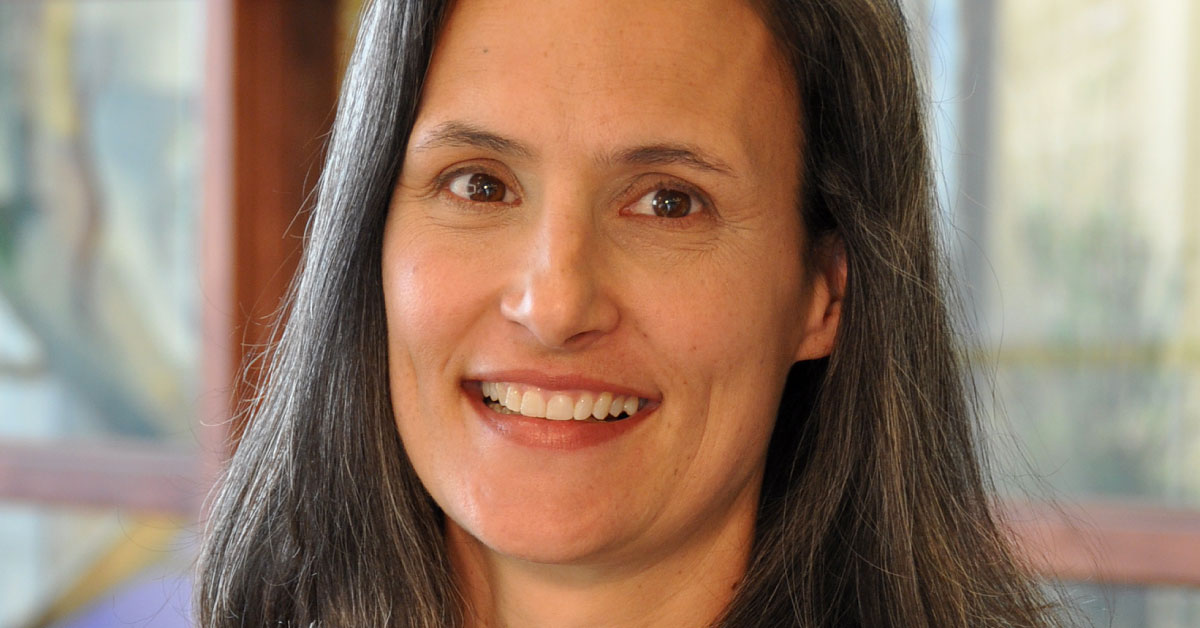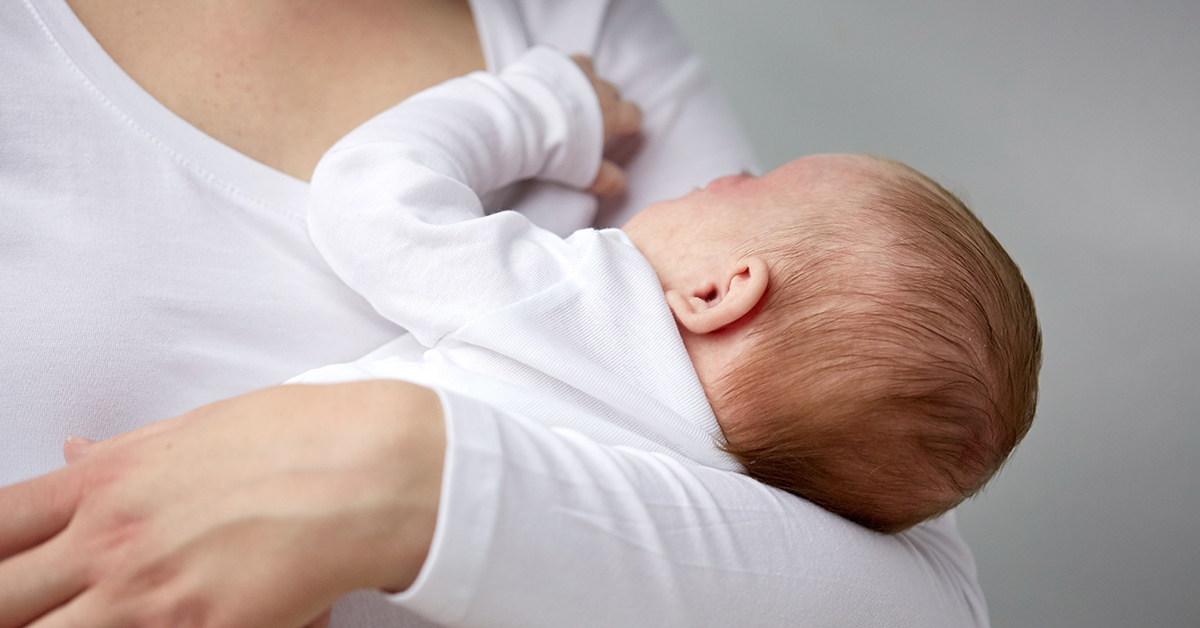How Does COVID-19 Affect Pregnancy and Childbirth?
TTUHSC expert walks through COVID-19 precautions during pregnancy and delivery

Teresa Baker, M.D.
With the world continuing to adjust to life under the COVID-19 pandemic, many expectant mothers are understandably anxious about how the virus could affect their pregnancies, their hospital and clinic visits, and first days of parenthood.
We spoke with Dr. Teresa Baker, resident program director of the Texas Tech Physicians Obstetrics and Gynecology clinic in Amarillo, about what new mothers can expect during this unprecedented time.
Pregnancy and COVID-19: Before Delivery
“Women who are pregnant should be taking the same safety precautions as the general
public,” Baker says. These include regularly washing hands, staying out of public
places and social distancing.
Baker explains that providers typically encourage prenatal care via telephone or computer whenever possible. However, if the patient is experiencing bleeding or complications, she explains that women are still being seen at Texas Tech Physicians clinics. During office visits while the COVID-19 precautions are in place, patients are passed through a screening process to get to the obstetrics floor.
“We’re trying to create the safest environment for pregnant women that we can,” Baker says. “For example, the ER called with somebody 34 weeks pregnant, who came in with a cough, fever and runny nose. They screened her and she went home. She never went up to the floor to expose any other pregnant moms or babies.”
Office precautions include prohibiting visitors in the ultrasound department; only the mother and necessary staff are allowed.
Pregnant with COVID-19 Symptoms
If a pregnant woman begins to feel COVID-19 symptoms before her scheduled appointment, she should call in advance and will be directed to the correct screening venue. Based on the severity of the symptoms, staff will decide the best course of action, including whether the patient should be admitted to the hospital.
Can COVID-19 Affect a Baby In Utero?
At this point, there is no documented case of vertical transmission of the COVID-19 virus, meaning there has been no record of the virus being passed from mother to baby.
“We know very little about COVID,” Baker says.
There is a concern with preterm labor as it relates to the virus, she says, but so far there has not been enough data to draw concrete conclusions. This reinforces the need for expecting mothers to practice all necessary safety precautions.
Baby Delivery During COVID-19
 What should mothers expect when they come to the hospital to deliver their baby? At
area hospitals, mothers are allowed one support person in the delivery room. It can
be whomever the new mom chooses, but the support person cannot be changed after he
or she has passed the screening process. The support person will be regularly screened
for symptoms, just like everyone else.
What should mothers expect when they come to the hospital to deliver their baby? At
area hospitals, mothers are allowed one support person in the delivery room. It can
be whomever the new mom chooses, but the support person cannot be changed after he
or she has passed the screening process. The support person will be regularly screened
for symptoms, just like everyone else.
Texas Tech Physicians has embraced communications technology during this difficult time. Baker explains that staff will help connect friends and family via teleconferencing to make sure that the new mom feels supported by anyone and everyone she wishes could be in the delivery room.
Breastfeeding During COVID-19
Baker recommends that new mothers wear a mask while letting their baby nurse. If the mother is positive for COVID-19, the baby should be fed expressed breast milk in a separate room, even though the baby has already been exposed by that point. Baker continues, “once mom is well enough to nurse, we’re going to let her nurse because she’s going to pass on immunity through the breast milk.”
Can Postpartum Depression Worsen Because of COVID-19?
The birth of a baby triggers powerful emotions that run the gamut from joy and excitement to fear and anxiety. Most new moms experience mood swings, crying spells, anxiety and trouble sleeping. However some new mothers can face a more severe and long-lasting form of depression called postpartum depression. And this can be greatly magnified by isolation and overwhelming stress. During this time of quarantine, new moms are finding themselves without the aid they would be getting from friends and family under normal circumstances, whether it's help with the baby or just a shoulder to cry or rest on. Baker says that it’s very important for new moms to get outside and get sunshine.
“There’s good evidence that sunlight and exercise help our serotonin levels,” she says.
She suggests using platforms like Zoom, FaceTime and Skype to connect to loved ones, see their faces and hear their voices.
How to Help a New Mom
During COVID-19 especially, friends and family should think of creative ways to lighten the load for the new mom at home. While it would be wonderful to drive over, knock on the door, and grab the bundle of joy for a good, old-fashioned “baby fix,” that’s just not an option until social distancing is over. We have to think of what’s best for mom and baby right now.
Instead of personal visits, send care packages and meals to the new family. Video chat every day. Make sure that the new mom in your life knows she’s not alone.
As we’re seeing day after day, and as we quarantine separately but together, we can find strength in each other.
Related Stories
Celebrating Veterans: TTUHSC’s General Martin Clay’s Legacy of Service and Leadership
From his initial enlistment in the Army National Guard 36 years ago to his leadership in military and civilian health care management roles, Major General Martin Clay’s career has been shaped by adaptability, mission focus and service to others.
Texas Tech University Health Sciences Center School of Nursing Named Best Accelerated Bachelor of Science in Nursing Program in Texas
The TTUHSC School of Nursing Accelerated Bachelor of Science in Nursing (BSN) program has been ranked the No. 1 accelerated nursing program in Texas by RegisteredNursing.org.
TTUHSC Names New Regional Dean for the School of Nursing
Louise Rice, DNP, RN, has been named regional dean of the TTUHSC School of Nursing on the Amarillo campus.
Recent Stories
The John Wayne Cancer Foundation Surgical Oncology Fellowship Program at Texas Tech University Health Sciences Center Announced
TTUHSC is collaborating with the John Wayne Cancer Foundation and has established the Big Cure Endowment, which supports the university’s efforts to reduce cancer incidence and increase survivability of people in rural and underserved areas.
TTUHSC Receives $1 Million Gift from Amarillo National Bank to Expand and Enhance Pediatric Care in the Panhandle
TTUHSC School of Medicine leaders accepted a $1 million philanthropic gift from Amarillo National Bank on Tuesday (Feb. 10), marking a transformational investment in pediatric care for the Texas Panhandle.
Texas Tech University Health Sciences Center Permian Basin Announces Pediatric Residency Program Gift
TTUHSC Permian Basin, along with the Permian Strategic Partnership and the Scharbauer Foundation, Feb. 5 announced a gift that will fund a new pediatric residency.
